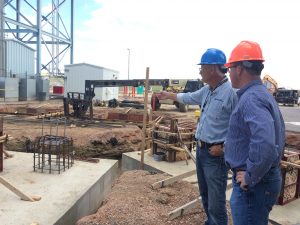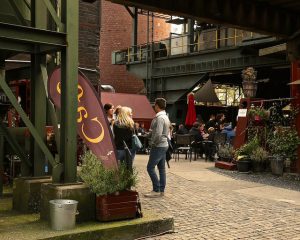Can coal remain the bedrock of Wyoming’s economy?

In recent years, the coal industry has employed one in every 10 workers in Gillette and surrounding Campbell County, Wyoming. But coal is declining as a power source. It can’t compete with cheaper, cleaner natural gas, and eventually, climate change regulations are expected to worsen its prospects.
With roughly 6.6 billion tons of recoverable coal still in the ground, and an economy hooked on mining and burning it, Wyoming can’t seem to quit coal. Instead, state leaders are trying to clean it up and find new uses for it at the Integrated Test Center, where researchers hope to capture carbon dioxide emissions and eventually turn those emissions into plastic, carbon-fiber materials, concrete or fuels.
So far, though, most “clean coal” initiatives have failed. Carbon-based rubbers, asphalts and chemicals have never achieved large-scale commercial success, partly because it’s easier and cheaper to just use petroleum. Highly touted efforts to capture and store emissions from coal plants have also fizzled because costs spiraled out of control. Even in Wyoming, it’s hard not to wonder: Is it smart to keep betting on coal?
“Can coal remain the bedrock of Wyoming’s economy?”
High Country News, September 18, 2017
